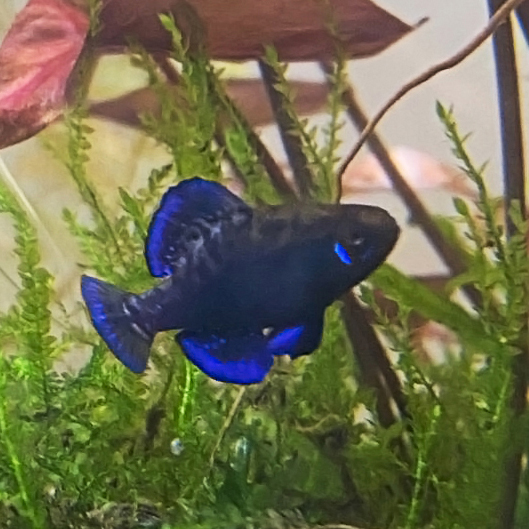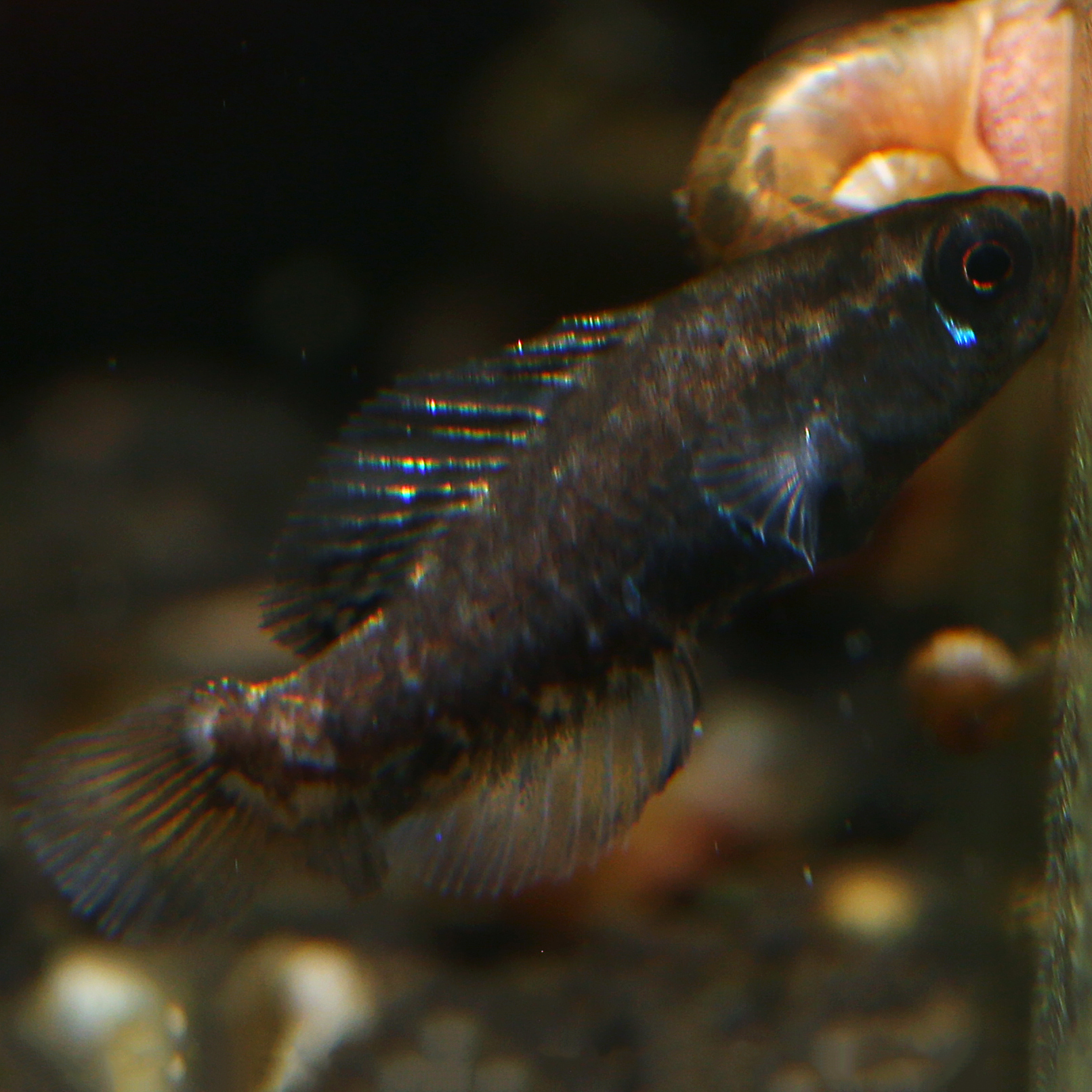Gulf Coast Pygmy Sunfish
Elassoma gilberti
With its shimmering blue scales on its dark body, the Gulf Coast Pygmy Sunfish is a real eye-catcher.
- small cold water fish
- only grows to about 3.5cm long
- great black and blue coloring
1 in stock
 Delivery in a few working days
Delivery in a few working days
 Free shipping from €60 across Austria
Free shipping from €60 across Austria





Important data
Product description & details
Elassoma gilberti, also known as Gulf Coast Pygmy Sunfish, is native to the USA, where it inhabits the shallow water and riparian areas of swamps and slow-moving streams. Although it can reach a length of up to 3.5cm, most animals remain significantly smaller with a body length of around 2.5cm. The male Gulf Coast Pygmy Sunfish in particular have an extremely beautiful coloring: the dark, black-brown marbled body and the numerous metallic blue iridescent scales that adorn it form a wonderful contrast to one another. This beauty is extremely rarely available in stores, making it a real rarity.
Care in the aquarium
Due to its small size, the Gulf Coast Pygmy Sunfish can be kept in an aquarium with a capacity of 54 liters. Depending on the size of the aquarium, one or more pairs can be kept together. A small group is easily possible in sufficiently large aquariums. The small perch can also be kept in the garden pond over the summer. Elassoma gilberti is a peaceful fish, but also forms small territories, which are also defended. For this reason, the tank should be well structured with roots, stone structures and dense vegetation so that the animals can get out of the way and retreat if necessary. Up to 2 pairs can be kept in a 54 liter tank. Socialization is possible in a larger tank with similarly small and peaceful fish. A cool overwintering period of at least 2 months at temperatures between 10 and 15°C is important and necessary for the health of the Gulf Coast Pygmy Sunfish and the attainment of the possible lifespan of 3-4 years, which is why it is not necessarily suitable for beginners.
Feeding
In nature, the Gulf Coast Pygmy Sunfish feeds on small crustaceans, worms and other aquatic creatures. In the aquarium, this carnivorous (flesh-eating) ambush hunter is fed mainly with live food that is not too large, such as copepods, daphnia, artemia (nauplii) or mosquito larvae. In some cases it can also be used to frozen food.
Sexual characteristics and breeding
The males in particular are impressive due to their dark coloring, from which the blue, iridescent scales on the body and the blue edges of the fins stand out wonderfully. The black color is particularly intense during the courtship season. The females, on the other hand, have a more inconspicuous brown-yellow marbling. Breeding Elassoma gilberti is only possible after a cool winter (10-15°C for at least 2 months). The female lays the approximately 40-60 eggs in the male’s territory, which means that the male indirectly defends them against potential predators. However, brood care in the classic sense is not carried out. Since this species does not prey on its offspring, the young and parents can be left in the same aquarium. The first feeding of the young fish, which hatch after about 3-7 days, takes place after just one day with the smallest live food such as infusoria.






